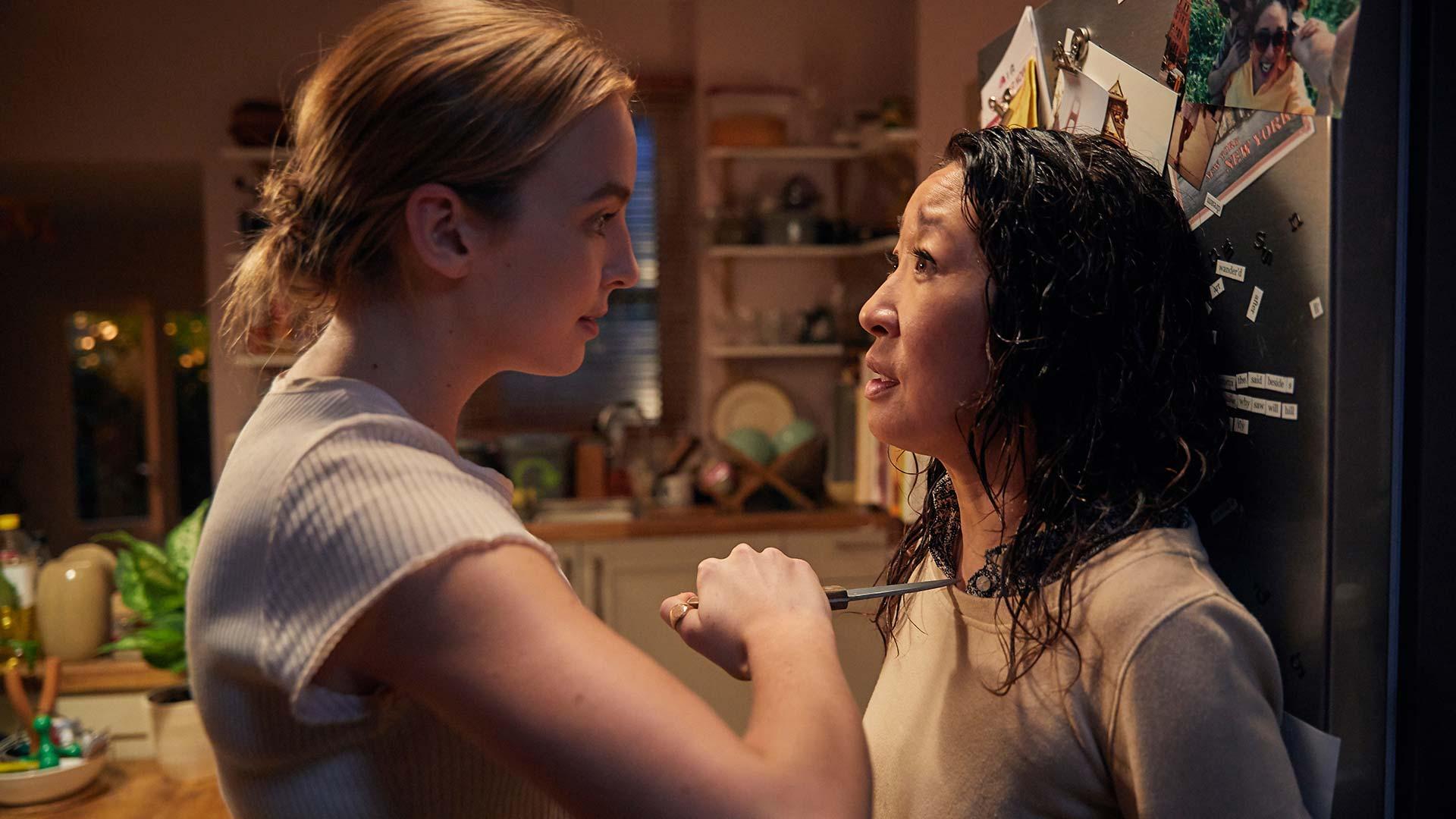You know when a Big Name critic declares a scene dead and shyly kicks dust over it? That kind of talk comes from the mouths of the dominant class—usually white, usually male—after they’ve chewed it to bits without letting anyone else have a chance at it.
White authors are declaring young adult romance dead without letting one black or brown protagonist have a happy ending with the same sappy teen love tropes. Fantasy novels are only just now discovering lands outside medieval Europe. Spy capers and cop dramas have been full of white male psychological angst for decades, Luther notwithstanding. Marginalized folks are then left with the scraps of a dead “scene” to piece together for a chance to see ourselves reflected in tropes or genres that often deny us. And that’s where revolution comes from.
What if I told you there was a show that combined the best parts of Hannibal and Elementary, cast the criminally underused Sandra Oh, and set her in a deadly bisexual love triangle? With me yet? I don’t mind admitting out loud that I’m a bit in my feelings about BBC’s dark thriller Killing Eve. It’s been the very hush-hush chat of my friends circle lately and I haven’t been this pumped for a serial killer protagonist since Dexter.
Killing Eve is my kind of spy show. I’m incredibly invested in the danger Eve Polastri finds herself in as dangerous and clever assassin Villanelle sets her sights on her. As the two become more and more obsessed with each other, we follow their international cat and mouse game and unravel the secrets of Villanelle’s past. Of course, there’s the allure of girl-on-girl action however twisted, but Killing Eve firmly resists the usual tropes of bisexuality and queer-baiting. Looking at you, Rizzoli & Isles.
The writing approaches the subject with respect, a little dark humor, and… well, I’m not saying it’s not at least a little hot. And more over, it’s an age-gap romance that doesn’t make the older woman in the situation look desperate. Finally, the B in LGBTQ+ is on the come up!
That is, with a few reservations. My eyes are always hungry to see queer attraction on screen and bisexuality in particular. But speaking of worn out tropes, there is one cropping up here that I’m not terribly excited to see. As excited as I am to see fellow bi characters on screen, as of episode 7 I feared Eve might be hitting a wall. There’s only so much from the bag of tricks that bisexual characters can draw from and it can be difficult to depict bisexual romance on screen.
But I’m a bit leery of Villanelle’s character heading for the “me and no one else” zone. You know the trope, usually pigeonholes queer characters as obsessive and predatory with single-minded obsession. Straight people get this treatment as well, but the endings are often very different. With all due respect to her status as a unrepentant murderess, Villanelle’s motivations for pursuing her “lovers” are a bit ho-hum at times. It’s easy to dismiss her obsessions and callousness as a side effect of her amorality. But for a show that has smartly challenged the status quo so far I am a little leery of her wandering too close to that deep, black hole of trope that probably should have a little dirt kicked on them.
You might be thinking, wait a minute. Villanelle is an irredeemable criminal. Is this something to complain about in a show where the villain watches her victims’ gasp their last breath with a smile? Yes. Wouldn’t be a big deal if bisexual representation were better out here, but here we are. We deserve to be well-crafted protagonists, why not antagonists as well? Maybe this is a stepping stone to more in the future, maybe the show will surprise me with a swerve. I’m hoping so. It has been too deliciously tense to let go and secretly discuss ships with my mates. As we roll on to season 2, here’s hoping the show runners don’t pull the rug from under us unlike a few other shows we could name, but politely won’t!


‘Looking at you, Rizzoli & Isles.’
I’d rather see Jane & Maura gaze longingly at each other than view scenes like that pictured above. Violence ain’t my thing.